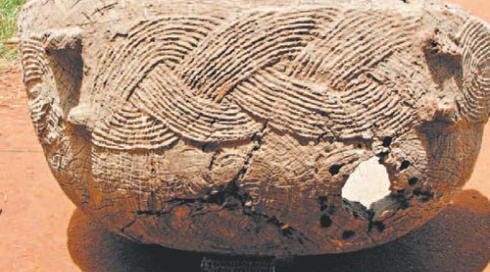From time to time during the 1990s, the media became very excited about an African tribe, the Lemba, who claimed to be Jews. Their excitement was the result of research by a British historian, Tudor Parfitt. He had spent time living in Lemba communities and had published several books and articles about the so-called ‘Lost Tribes’ of Israel. He wrote specifically about the Lemba in his 1992 book, Journey to the Vanished City: The Search for a Lost Tribe of Israel.
Members of the Lemba community now live in small groups in South Africa and Zimbabwe. They trace their ancestry to a town named Sena, somewhere to the north, across the sea, a place whose exact location they no longer knew. Many of their traditions are reminiscent of Jewish practices, they ritually slaughter their meat, only eat animals that have hooves, , practise circumcision, never marry outside the tribe and, although shabbat does not feature among their customs, they regard the number seven as sacred. These practices alone do not necessarily indicate a Jewish background, but when considered alongside the history that they tell about themselves, a connection to the ancient Israelites sounds more convincing.
He claimed to have hailed from the lost tribe of Dan and had arrived in Europe after crossing the mythical African river of Sambatyon.
The Lemba regard themselves as blood relatives of the Beta Israel, the Ethiopian Israelite tribe often referred to as Falashas. Their tradition tells them that they are descendants of King Solomon and the Queen of Sheba and that their ancestors lived under Solomon’s rule in the mysterious city of Sena. They left Sena due to some catastrophe, now forgotten, and crossed the sea to Africa. There they rebuilt Sena, on a site now known by archaeologists as the Great Zimbabwe, a monumental stone city that once was home to perhaps as many as 20,000 people.



